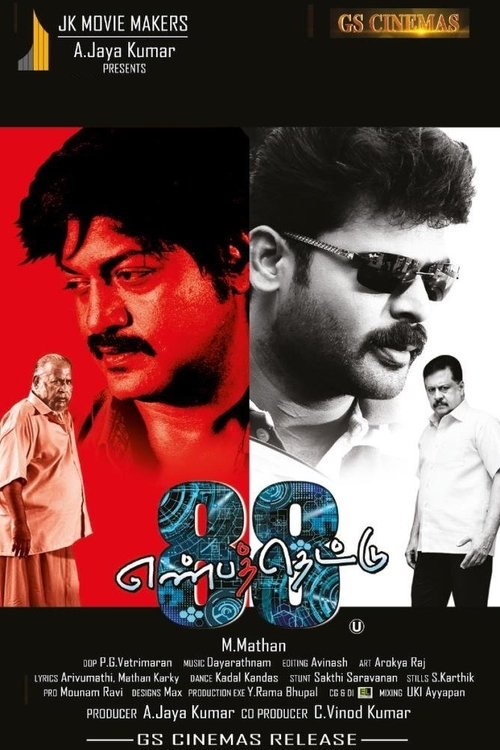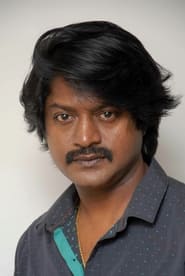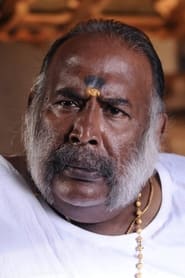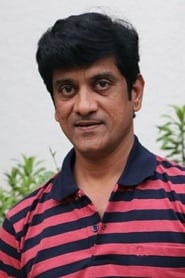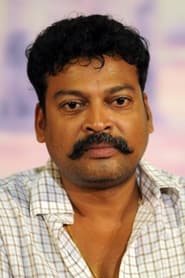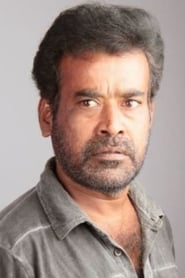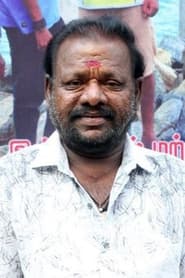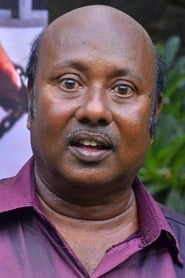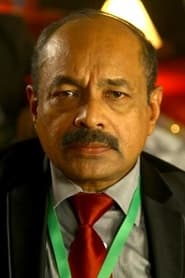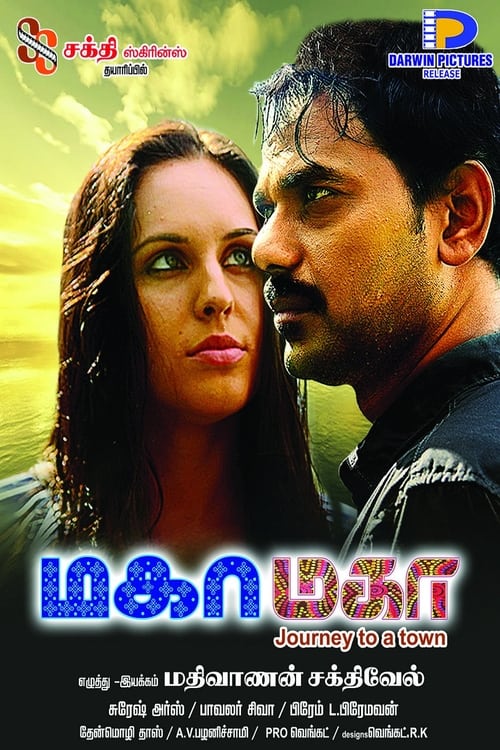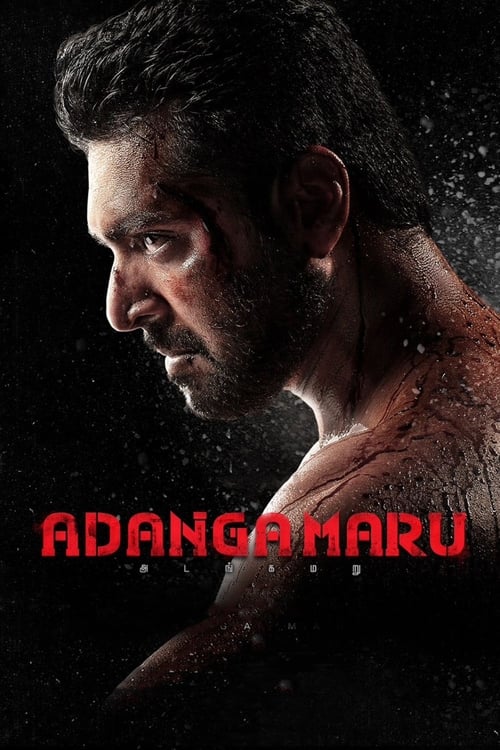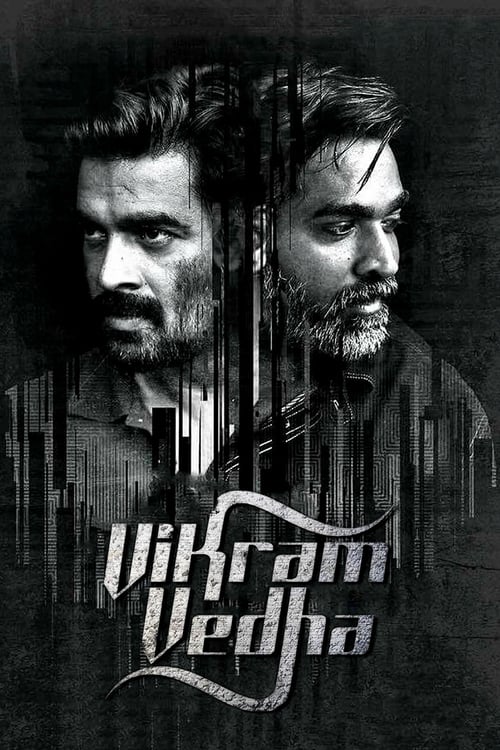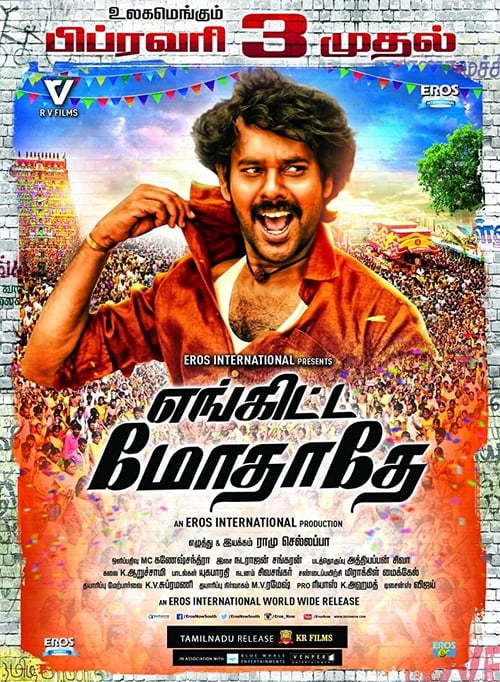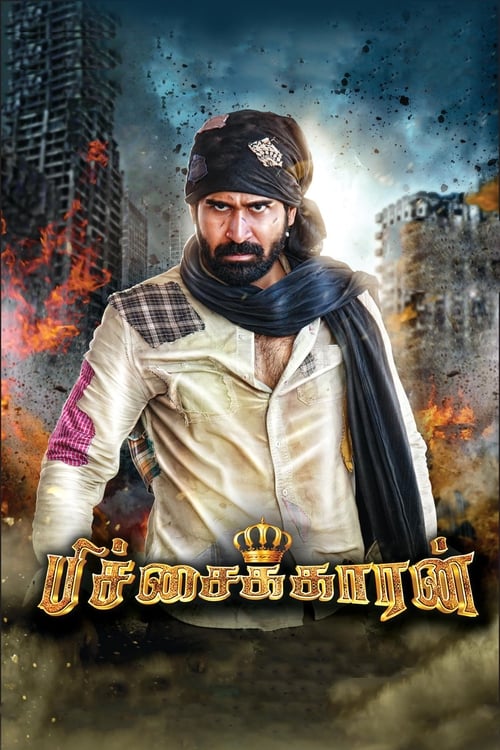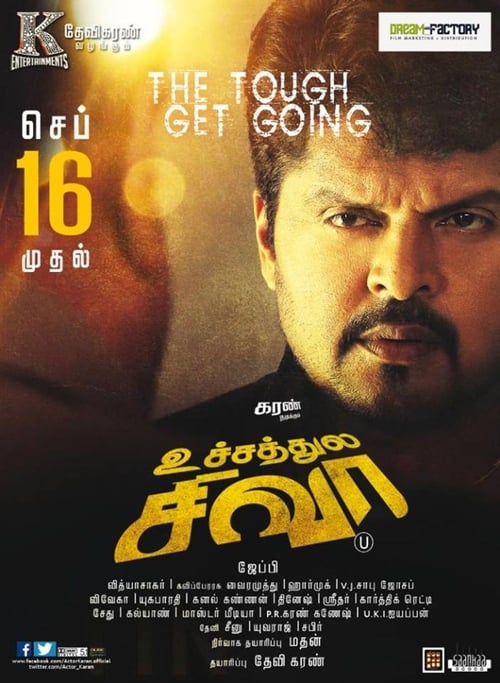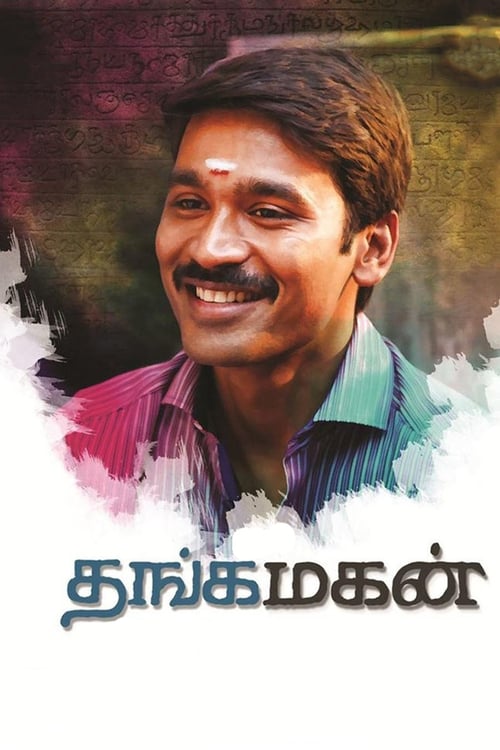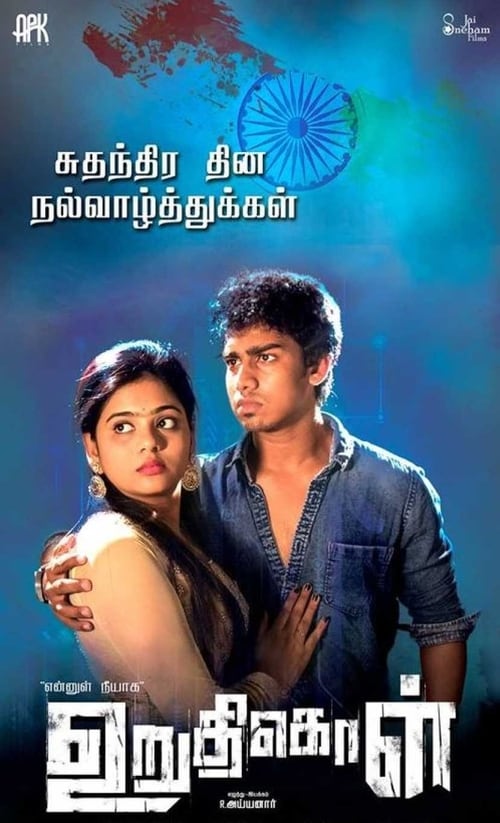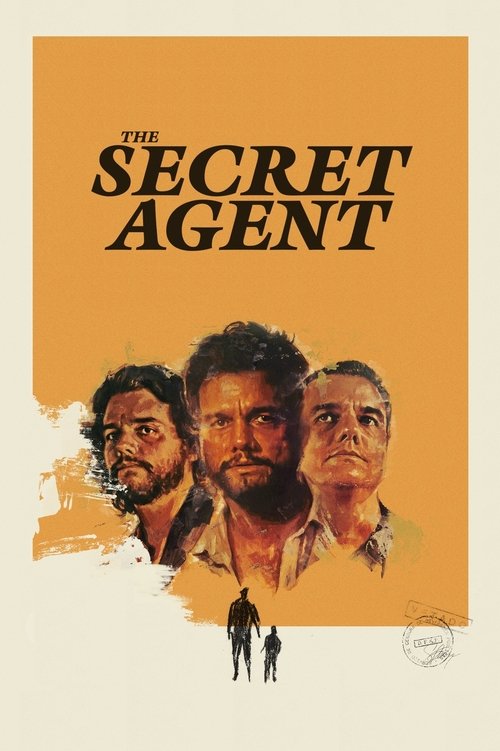
Ask Your Own Question
What is the plot?
The humid air of Chennai wraps around the city as the sun rises over the rooftops of a modest neighborhood. It is a typical morning in July 2017, and Madhan (played by Madhan), a man in his early thirties, is already awake, preparing for another day. He is a family-oriented man, deeply devoted to his wife Savitha (Upasana RC) and their young daughter. His life is simple, predictable, and filled with the quiet joys of domestic routine. He kisses his daughter's forehead before leaving for work, exchanges a warm smile with Savitha, and steps out into the bustling streets, unaware that his ordinary life is about to be shattered.
Madhan works as a mid-level executive at a small IT firm in the city, where he is known for his diligence and calm demeanor. His colleagues respect him, and his boss, Raghuvaran (Jayaprakash), often praises his reliability. Raghuvaran is a stern but fair man, a father figure to many in the office, and Madhan looks up to him. At home, Madhan's mother, Meera Krishnan, lives with them, adding warmth and wisdom to the household. Savitha's father, Manikka Vinayagam, is a retired schoolteacher who visits often, bringing stories from his past and advice for the present.
The days pass in a blur of routine--work, family, and the occasional outing with friends. Madhan's phone, a simple smartphone, is his only link to the outside world beyond his immediate circle. He uses it sparingly, mostly for calls and messages to family and colleagues. He is not one for social media or flashy apps, preferring the quiet comfort of real-life connections.
But on the evening of July 15, 2017, everything changes.
Madhan is at home, helping his daughter with her homework, when his phone rings. The number is unfamiliar, but he answers, thinking it might be a client or a colleague. Instead, a rough voice on the other end demands, "Where is the money? You know what happens if you don't pay." Madhan is confused. "I don't know what you're talking about," he replies, but the voice only growls, "You'll regret it," and hangs up.
Savitha notices his unease. "Who was that?" she asks. Madhan shrugs. "Some wrong number, I think." But the call leaves him unsettled. Over the next few days, the calls become more frequent, more threatening. Sometimes, the voice is different, but the message is the same: pay up, or face the consequences. Madhan tries to ignore them, but the fear begins to seep into his life. He checks his phone records, but there is nothing unusual--no outgoing calls to suspicious numbers, no strange transactions.
Then, on July 18, the trouble escalates.
Madhan is at work when two men in dark clothes enter the office. They walk straight to his desk and demand to know where the money is. Raghuvaran intervenes, but the men are not intimidated. "This is between us and him," one says, glaring at Madhan. The office is tense, everyone watching. Madhan denies knowing anything, but the men leave with a warning: "You have until tomorrow."
That night, Madhan confides in Savitha. "I don't know what's going on," he says, his voice trembling. "But I think someone is using my number." Savitha is frightened but tries to stay calm. "We should go to the police," she suggests. Madhan hesitates. "What if they don't believe me? What if this gets worse?"
The next morning, July 19, Madhan visits the local police station. He explains the situation, but the officer in charge, Sakthi Saravanan (John Vijay), is skeptical. "You're saying someone is using your number to commit crimes? That's not possible unless you gave it to them." Madhan insists he didn't, but the officer tells him to come back if there's more evidence.
As Madhan leaves the station, he notices a man in a black car watching him. The man's face is hidden, but Madhan feels a chill run down his spine. He hurries home, but the sense of being watched does not leave him.
That evening, the gangsters strike again. This time, they send a text message to Madhan's phone: "We know where you live. Pay up, or your family will suffer." Madhan is terrified. He locks the doors, checks the windows, and stays awake all night, listening for any sound.
The next day, July 20, Madhan decides to investigate on his own. He visits a friend who works in telecommunications, hoping to trace the calls. The friend, Chaams, agrees to help. After some digging, they discover that Madhan's number has been cloned--a technique used by criminals to make calls and send messages that appear to come from his phone, but actually originate from a different device.
Madhan is stunned. "So someone is pretending to be me?" he asks. Chaams nods. "It's not hard to do if you know the right people. But finding who did it… that's the hard part."
Madhan realizes he is in deep trouble. The gangsters are not after him personally--they are after the person who used his number. But to them, he is the target. He must find a way to clear his name before it's too late.
Over the next few days, Madhan begins to piece together the puzzle. He learns that the gangsters are led by a man named Daniel Balaji, a ruthless criminal with a reputation for violence. Balaji's gang is involved in extortion, kidnapping, and drug trafficking. They use cloned numbers to avoid detection, and Madhan's number was chosen at random.
Madhan's investigation leads him to Kumbakonam, where he hears rumors of a man who specializes in phone cloning. The man, known only as Scissor Manohar, is a shadowy figure who operates from a small shop in the old part of town. Madhan tracks him down and confronts him. "Did you clone my number?" he demands. Manohar, a wiry man with nervous eyes, denies it at first, but under pressure, he admits that he did--on the orders of Balaji's gang.
Madhan is furious. "Why did you do it? Do you know what you've put me through?" Manohar shrugs. "I was paid. I don't ask questions." Madhan wants to report him, but Manohar warns, "If you go to the police, Balaji will come after you. He's not someone you want to cross."
Madhan leaves, more determined than ever to clear his name. He returns to Chennai and begins to gather evidence. He records every call, saves every message, and documents every encounter with the gangsters. He also reaches out to Raghuvaran, who agrees to help. Raghuvaran uses his connections to get more information about Balaji's gang.
On July 23, Madhan receives a call from Balaji himself. "You've been asking questions," Balaji says, his voice cold. "That's not smart. If you want to live, stop digging." Madhan refuses to back down. "I didn't do anything. I just want to clear my name." Balaji laughs. "Names don't matter. Only money does. Pay up, or you'll regret it."
Madhan knows he is running out of time. He decides to confront Balaji directly. With Raghuvaran's help, he arranges a meeting at an abandoned warehouse on the outskirts of Chennai. The meeting is set for the evening of July 24.
As Madhan arrives at the warehouse, he is met by Balaji and several of his men. The air is thick with tension. Balaji steps forward, a cigarette dangling from his lips. "You're brave, I'll give you that," he says. "But bravery won't save you."
Madhan stands his ground. "I didn't do anything. I just want to clear my name. Let me prove it."
Balaji smirks. "Prove it? How? With your little phone records? That's not enough. You owe me money, and you're going to pay."
Madhan shakes his head. "I don't owe you anything. You're the one who's been using my number. I have proof."
Balaji's expression darkens. "Proof? Show me."
Madhan pulls out his phone and plays a recording of a conversation with Manohar, in which Manohar admits to cloning the number on Balaji's orders. Balaji listens, his face unreadable. Then, without warning, he grabs Madhan and slams him against the wall. "You think you're clever? You think you can outsmart me?"
Madhan struggles, but Balaji's men hold him down. "You're going to pay," Balaji says, pulling out a knife. "One way or another."
Just as Balaji is about to strike, Raghuvaran and several police officers burst into the warehouse. "Drop the knife!" Raghuvaran shouts. Balaji hesitates, then throws the knife aside. The police arrest him and his men.
Madhan is shaken but unharmed. He thanks Raghuvaran and the officers. "I couldn't have done it without you," he says.
The next day, July 25, Madhan is cleared of all charges. The police confirm that his number was cloned, and Balaji's gang is charged with extortion and identity theft. Manohar is also arrested for his role in the scheme.
Madhan returns home, exhausted but relieved. Savitha embraces him, tears in her eyes. "I was so scared," she says. "I thought I'd lose you."
Madhan holds her close. "I'm here. It's over."
But the ordeal has changed him. He is more cautious, more aware of the dangers of technology. He teaches his daughter to be careful with her phone, to never share personal information online.
The film ends with Madhan standing on the balcony of his home, looking out over the city. The sun is setting, casting a golden glow over the rooftops. He takes a deep breath, savoring the peace.
Inside, Savitha calls him. "Dinner's ready."
Madhan smiles and turns away from the view. "Coming," he says.
As he walks back inside, the camera lingers on the city skyline, a reminder of the chaos and danger that lurk beneath the surface of everyday life.
The final scene fades to black, and the words "Use technology wisely" appear on the screen, a message that echoes through the story.
Madhan lives, Savitha lives, Raghuvaran lives, and the family is reunited. Balaji and his gang are arrested, and Manohar is brought to justice. No one dies in the film, but the threat of violence is ever-present, a constant reminder of the dangers of the modern world.
The story of Enbathettu is one of resilience, courage, and the importance of staying vigilant in an age where technology can be both a blessing and a curse.
What is the ending?
In the ending of "Enbathettu," the protagonist, after a series of intense confrontations and emotional revelations, finds a sense of closure. The main character reconciles with their past, leading to a bittersweet resolution. The film concludes with a poignant scene that encapsulates the journey of self-discovery and acceptance.
As the final act unfolds, the protagonist stands at a crossroads, both literally and metaphorically. They reflect on the choices made throughout the film, the relationships forged, and the conflicts faced. The emotional weight of their journey culminates in a moment of clarity, where they embrace their true self and the lessons learned. The film closes with a visual representation of hope and renewal, leaving the audience with a sense of resolution.
Expanding on the ending, the scene begins with the protagonist standing alone on a cliff overlooking a vast landscape, the sun setting in the background, casting a warm glow over the horizon. This moment is heavy with introspection; the protagonist's face is a canvas of emotions--relief, sorrow, and a hint of newfound strength. They take a deep breath, the wind tousling their hair, symbolizing the freedom that comes with acceptance.
Flashbacks intersperse this scene, showing key moments from the protagonist's journey: the struggles with their identity, the conflicts with family and friends, and the pivotal moments of betrayal and trust. Each memory is vivid, filled with the sounds of laughter, arguments, and moments of silence that speak volumes. The protagonist's internal conflict is palpable; they grapple with feelings of guilt and regret but also recognize the growth that has come from these experiences.
As the protagonist turns away from the cliff, they are met by a close friend who has been a steadfast supporter throughout the film. This friend approaches with a tentative smile, embodying hope and understanding. Their conversation is heartfelt, filled with unspoken words and shared glances that convey a deep bond. The friend reassures the protagonist that it's okay to let go of the past and embrace the future, reinforcing the theme of acceptance.
In the final moments, the protagonist and their friend walk away from the cliff together, the camera panning out to reveal the expansive landscape before them. The sun dips below the horizon, symbolizing the end of one chapter and the beginning of another. The protagonist's fate is one of liberation; they have chosen to move forward, leaving behind the burdens that once held them back.
The film concludes with a lingering shot of the horizon, a visual metaphor for the endless possibilities that lie ahead. The audience is left with a sense of hope, reflecting the protagonist's journey toward self-acceptance and the importance of supportive relationships in overcoming personal struggles. Each character's fate is intertwined with this theme, as they all learn to navigate their own paths toward understanding and acceptance.
Is there a post-credit scene?
In the movie "Enbathettu," there is indeed a post-credit scene that adds an intriguing layer to the narrative. As the credits roll, the screen fades to black before transitioning to a dimly lit room where the protagonist, Ravi, is seen sitting alone at a table, his face illuminated by a single flickering candle. The atmosphere is heavy with a sense of unresolved tension.
Ravi appears contemplative, his brow furrowed as he stares at a series of photographs spread out before him. Each image captures moments from his journey, showcasing both the joy and the pain he has experienced. The flickering light casts shadows that dance across his face, reflecting the turmoil within him.
Suddenly, the door creaks open, and a figure steps into the room. It's Meera, his love interest, who had been a source of both inspiration and conflict throughout the film. Her expression is a mix of concern and determination. She approaches Ravi, and the air is thick with unspoken words.
In this moment, Ravi's internal struggle is palpable. He grapples with the choices he has made and the consequences that lie ahead. Meera reaches out, placing her hand on his, grounding him in the present. Their eyes lock, and a silent understanding passes between them, hinting at the possibility of reconciliation and a new beginning.
The scene ends with a close-up of their intertwined hands, symbolizing hope and the strength of their bond despite the challenges they face. The screen fades to black once more, leaving the audience with a lingering sense of anticipation for what lies ahead in their journey.
What motivates the main character, Arjun, to embark on his journey in Enbathettu?
Arjun, a young man from a small village, is driven by a deep desire to find his estranged father, who left the family when he was a child. This quest is not just about reconnecting with his father but also about understanding his own identity and the legacy of abandonment that has haunted him. His emotional turmoil is palpable as he grapples with feelings of anger, longing, and hope.
How does the relationship between Arjun and his mother evolve throughout the film?
Initially, Arjun's relationship with his mother is strained; she is protective and often dismissive of his desire to seek out his father. As the story progresses, their interactions reveal layers of grief and unspoken love. Arjun's journey forces his mother to confront her own past and the pain of loss, leading to moments of vulnerability where they share their fears and hopes, ultimately strengthening their bond.
What role does the village play in shaping the characters' lives in Enbathettu?
The village serves as a microcosm of tradition and community, influencing the characters' decisions and relationships. It is depicted as a place filled with both warmth and suffocating expectations. The villagers' opinions weigh heavily on Arjun, especially as he seeks to break free from their judgments. The vibrant festivals and daily struggles of village life are intricately woven into the narrative, highlighting the contrast between Arjun's aspirations and the limitations imposed by his surroundings.
What challenges does Arjun face while searching for his father, and how do they affect him?
Arjun encounters numerous obstacles on his quest, including physical hardships like treacherous terrain and emotional challenges such as the fear of rejection. Each setback deepens his resolve but also brings moments of despair, forcing him to confront his insecurities. The emotional weight of his journey is illustrated through his interactions with strangers who either help or hinder him, reflecting his internal struggle between hope and hopelessness.
How does the character of Arjun's father influence the story, despite his absence?
Arjun's father, though absent for most of the film, looms large in the narrative. His decisions and the reasons for leaving are explored through flashbacks and conversations, painting a complex picture of a man torn between duty and desire. This absence shapes Arjun's motivations and emotional landscape, as he grapples with the idea of forgiveness and the need for closure. The father's legacy is a driving force that propels Arjun forward, even as it complicates his understanding of family and belonging.
Is this family friendly?
"Enbathettu," produced in 2017, is a film that explores complex themes and emotional narratives. While it may not be explicitly categorized as a family-friendly movie, it does not contain overtly graphic content. However, there are several aspects that could be potentially objectionable or upsetting for children or sensitive viewers:
-
Emotional Turmoil: The film delves into deep emotional struggles, including themes of loss, betrayal, and familial conflict, which may be intense for younger audiences.
-
Conflict and Tension: There are scenes of interpersonal conflict that may involve shouting or heated arguments, which could be distressing for some viewers.
-
Depictions of Grief: The portrayal of grief and mourning is significant in the film, and these scenes may evoke strong emotional responses.
-
Societal Issues: The film touches on societal challenges and personal dilemmas that may be difficult for children to understand fully.
-
Mature Themes: The narrative includes mature themes that may not be suitable for younger viewers, such as the complexities of adult relationships and moral dilemmas.
Overall, while "Enbathettu" does not contain explicit violence or adult content, its emotional depth and thematic complexity may not be appropriate for all children or sensitive individuals.

